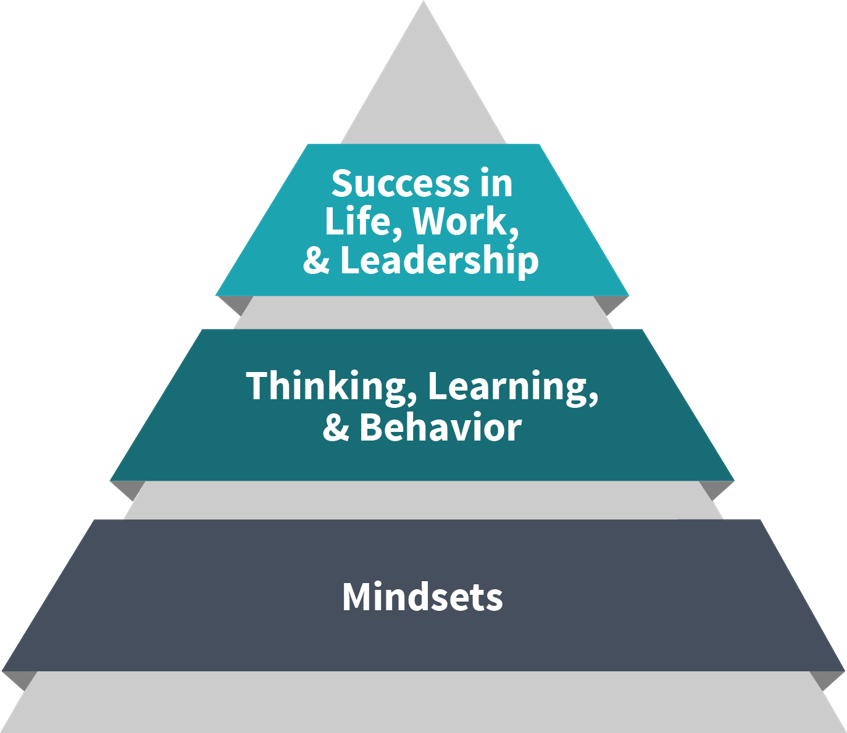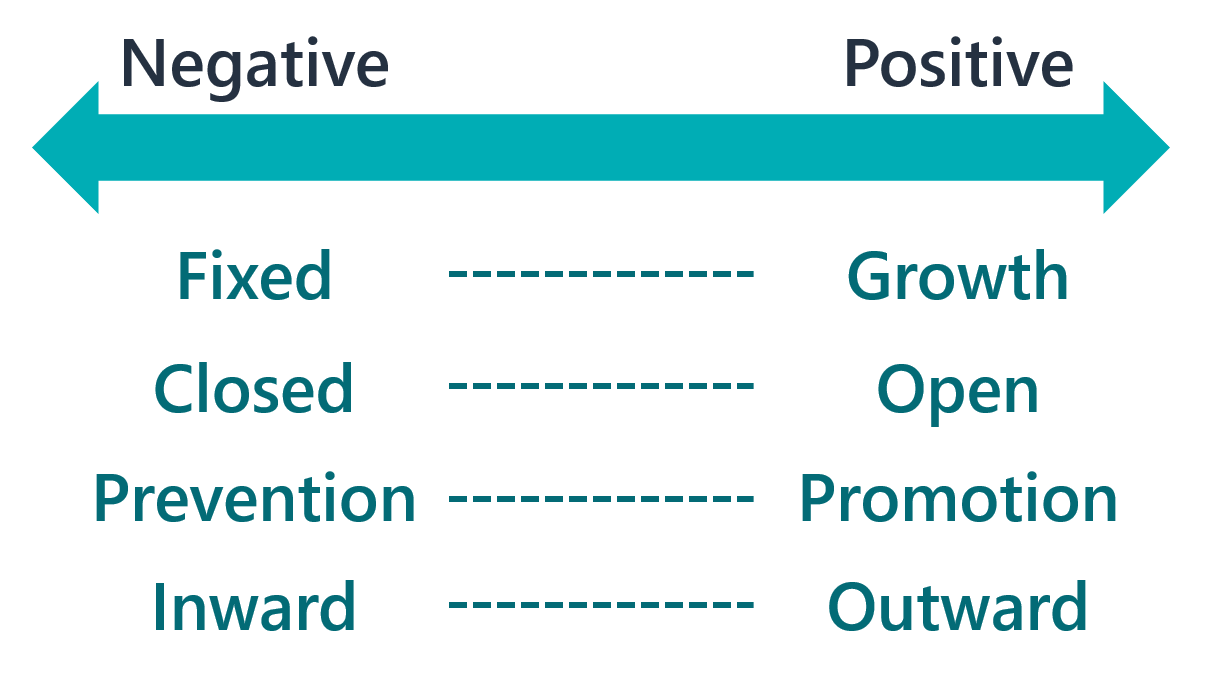Each of us has our own unique set of mindsets that we rely upon to navigate our world.

Our mindsets are our mental lenses that perform three primary functions, largely automatically and nonconsciously, in helping us navigate our world:
- They pick up on select environmental cues that they deem most important within that context
- They interpret these environmental cues in unique ways (e.g., seeing feedback as a being helpful or being defeating)
- They activate elements about ourselves (e.g., personality, values, self-regulatory processes) that will allow us to best navigate the situation based upon the cues identified and how they were interpreted
Because our mindsets dictate how we see, interpret, and respond to our environments, they are foundational to everything we do.

As such, the quality of our mindsets affects how effectively and successfully we navigate our environments. And, if we can improve our mindsets, we will ultimately be able to more effectively and successfully navigate our lives.
Research Backing for Mindsets
Fortunately for us, research on mindsets has been going on for over 30 years. And across different fields of study (e.g., psychology, management, education, and marketing), researchers have identified mindsets that are more conducive to success and others that are less conducive to success.
In other words, there is compelling evidence suggesting that there are ways of seeing, interpreting, and responding to our environments in more effective ways than others.

What does this mean for me?
While this probably makes sense. A challenge that all of us face is that we all generally think we see, interpret, and respond to our environments in the best way possible.
I feel comfortable saying this because if we thought we could see, interpret, and respond to our environments in better ways, we would have done so already.
The reality is that we have developed specific mindsets (i.e., habitual patterns of seeing, interpreting, and responding to our environments), and for most of us, these mindsets lead us to operate less successfully than we could if we had more positive mindsets.
Specifically, across the 10,000+ people who have taken my mindset assessment, only 5% are in the top quartile for the four different mindsets that I focus on.
If you haven’t taken my mindset assessment, you can do so here:
4 Sets of Mindsets
There are four sets of mindsets that have been studied for decades. Each set involves a more negative mindset and a more positive mindset, which I present in the form of a continuum as follows:

Our current mindsets fall somewhere along each of these continuums.
My personal mindset assessment can help you understand what each of these mindsets is and identify where your current mindsets exist along each of these continuums.
Coming Blog Post Series
In my next eight blog posts, I will be diving into each of these sets of mindsets. For each set, I will be:
- Reporting what research says about the benefits of each of the four positive mindsets
- Providing recommendations for how we can improve our mindsets to become more growth, open, promotion, and outward, respectively










